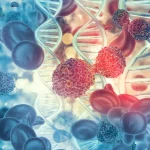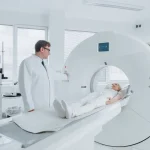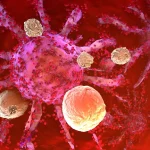Diarrhea
Diarrhea occurs when stools are abnormally liquid and frequent compared to your personal average (over four to six bowel movements per day).
The bowel movements may or not be accompanied by abdominal cramps.
This problem could be caused by the cancer itself, by the treatment received or by the medication you are taking. Diarrhea is a common side effect of chemotherapy or (mainly abdominal) radiotherapy.
Helpful hints
- Temporarily replace whole grain bread and grain products with refined products (white bread, white rice).
- Drink eight to ten glasses (two to three liters) of water or other liquids at room temperature, unless otherwise advised by the medical team. Compensate for the loss of electrolytes by eating foods such as bananas and potatoes, drinking sports drinks, peach and apricot nectar, or by taking an oral rehydration solution composed of a half a teaspoon of tea salt and six teaspoons of sugar in a liter of water.
- Eat regularly.
- Emphasize fruits and steamed vegetables as well as fish and poultry.
- Chew slowly.
- Eat five or six small meals a day.
- Watch out for signs of dehydration (e.g. dizziness, thirst, dry mouth, decreased urination).
- Check for fever.
- Note the number and frequency of diarrheal bowel movements so that you can inform the healthcare team.
- Avoid the following foods:
- strong spices;
- fried foods;
- very sweet foods;
- foods that have a lot of skin, membranes and seeds;
- fresh fruit, raw vegetables, whole grain bread and cereals;
- onion, cabbage, cauliflower, brussel sprouts, broccoli, garlic, nuts;
- alcohol and tobacco;
- caffeine;
- iced drinks;
- milk and other dairy products.
Severe diarrhea can cause dehydration and greatly weaken a person. It is advisable to contact the oncology team in the following situations:
- liquid stools six or more times a day for more than two consecutive days;
- presence of blood on the anus, in the stool on the toilet paper, or in the bowl;
- absence of urine for 24 hours;
- signs of dehydration;
- inability to drink for more than 24 hours;
- fever;
- weight loss of two kilograms or more;
- swollen or painful abdomen.































